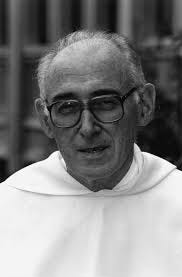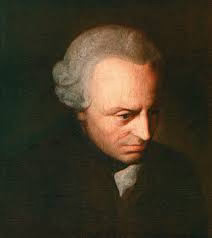What, you don’t know who Father Servais Pinckaers, OP is?!
Despite having an odd name, but not so odd if you pay attention to Dutch and Belgian names, Servais Pinckaers was an amazing moral theologian of the post-Vatican II era. I am just a beginner in reading his works and the conversations of which they form a part, but I love what I’m reading so far. So, I thought I would share with you what he teaches about two types of freedom: freedom for excellence and freedom of indifference.
I recently read two books by Father Servais, The Sources of Christian Ethics and Morality: The Catholic View. The latter is a shortened and more-accessible version of the former, from what I could tell. Both books look at the history of moral theology, tracing the changing view of the human person and especially of human freedom. He then lays out a moral theology based on virtue rather than obligation, following Saint Thomas Aquinas’s Second Part of the Summa Theologiae. These are all huge issues that I cannot do justice to, but I want to share what I learned about freedom.
Freedom seems to be something that we all want but something that is difficult to define. We know when we feel free and when we feel constrained. We like to feel free and we don’t like to feel constrained. The American experience is one that highly values freedom, and freedom is a hallmark of Modern and Enlightenment philosophy. But the modern notion of freedom is not the whole story of the word. Here is how Father Servais lays it out:
“Everything hinges on one’s interpretation of the classical definition of free choice…formulated in the middle of the twelfth century by Peter Lombard in his Sentences.
Free choice is that faculty of reason and will by which we either choose the good with the assistance of grace, or choose evil without such assistance.”
Morality: The Catholic View, p. 68
Does freedom “proceed from” reason and will or “precede” reason and will? Is freedom something that is based on nature or something that comes before (and is in opposition to) nature?
Saint Thomas Aquinas (died 1274) commented on Peter Lombard, teaching that freedom proceeds from the well-functioning reason and will. Reason and will are shaped and formed by virtues that perfect them, and so the person who is most virtuous acts out of perfected reason and will and therefore is most free. Nature and freedom go together. This is freedom for excellence. Pinckaers compares it to the freedom that a great piano player or a great tennis player has. The person is free “within” the rules and structures of his instrument or her sport. The rules are present, but they do not constrict freedom; rather, the rules make free action “second nature.” Rules and freedom, in this model, are directly related: as one goes up, the other goes up. In short, according to Thomas Aquinas and his buddy Servais Pinckaers, Anthony Edwards (Go T-Wolves!) is much freer to play basketball than I am.
But is this the freedom of the modern world? Not at all! In the modern notion of freedom, I am just as free to play basketball as Anthony Edwards because I can pick up a basketball just as much as he can. I can throw it toward the basket just as much as he can. My freedom to play has nothing to do with the internalization of the laws and movements of the game. It is “freedom of choice” or what Pinckaers calls “freedom of indifference.” This is the freedom that “precedes” reason and will and therefore does not depend on them. This word “depend” is hugely important. The more one is independent in choice, the more free one is. It doesn’t matter the content of that choice. Simply put, it is good to choose, it is evil not to be able to choose. In this context, laws and rules are seen as constricting and limiting of freedom, because with laws and rules—or even the natural faculties of reason and will—I am dependent. Freedom and law are inversely related: the more one goes up, the more the other goes down. The poster child and whipping boy for this view of freedom is William of Ockham (died 1349). Blame Ockham!
But it is not Ockham who laid out all the consequences of this view of freedom. I find the moral philosophy of Immanuel Kant the most enlightening here.
Kant laid out a moral philosophy that would strive for a freedom of choice that would not be bound by anything but duty, and particularly not be bound by any feeling of happiness or fulfillment that doing the moral thing might bring. He saw moralities of happiness as “hedonistic” (from the Greek hedone, which means “pleasure”).
A quick aside: Pinckaers has a fascinating section in Morality: The Catholic View that distinguishes pleasure from joy. Moving on…
While there is something valuable and even admirable about those who would do their duty even if it brought them no happiness, we can see how the freedom of indifference, the freedom to choose independent from nature, is at work here. The duty that I have perceived to be mine is not affected by anything outside of me. I establish what duty is in the light of the categorical imperative (Act only according to that maxim by which you can at the same time will that it should become a universal law). Who is in control of reason and will? The freely decided person. The free person is not acting according to nature, is not following reason and will, but is directing them. There is restriction here, but it is self-restriction, from which we get the word “autonomous” or “self-law.” We are very far from the well-functioning, happy, virtuous man of Thomas Aquinas.
In the view of Aquinas, the whole human being would be working together to “live up” to a high call that he did not give himself. The person sees within his own nature a call to know and love. In Christianity, the call remains, but nature has been called higher, to know and love with supernatural faith, hope, and charity. Freedom comes, paradoxically, by being obedience to that call that comes from the God who made us. And this call affects even our bodily and emotional life. The whole person can be “lined up” in following God’s call. This does not mean that I always feel pleasure. It means that I feel joy. Pinckaers description of joy is worth more space than I can give it here. Here is just one quote:
Joy is the direct effect of excellent action, like the savor of a long task finally accomplished. It is also the effect in us of truth understood and goodness loved. Thus, we associate joy with virtue, regarding it as a sign of virtue’s authenticity.
Morality: The Catholic View, p. 78
So, am I saying that doing good will always make me feel good? Maybe in Eden before the Fall. What the Lord promises is a joy that can persist even in pain, even when we are poor, meek, humble, and lowly, like the Beatitudes describe (Matthew 5:1-12). But what Thomas Aquinas teaches is that it is possible to “run on all cylinders” even now in this life. This is the freedom. This is joy.
A personal note and a last example.
I have been really helped over the last five years or so by the writing of Doctor Conrad Baars and Doctor Anna Terruwe, two psychiatrists who developed their thought along the lines of Thomas Aquinas’s moral theology and especially in line with his idea of freedom for excellence. You can check out some of their thought here. I would especially recommend Psychic Wholeness and Healing: Using All the Powers of the Human Psyche. Their idea of “affirmation therapy” helped me move from the constricting world of duty-based morality to happiness morality. Again, this does not mean that there is not a place for rules, but the formation that rules bring lead to a freedom to operate in a more fully human way. Think of the professional basketball player. Or of the person who becomes fluent in French. The good doctors taught me that it is possible to become fluent at being human!
Last example, one time in the confessional, Father Luigi Giussani spoke to a young man who idolized Capaneus, the character in Dante’s Inferno who typifies an extreme freedom of indifference. He is in Hell, suffering for his sins, but he at least is able to curse God. God hasn’t taken away his freedom to curse Him, even if that cursing makes him miserable. This young man in the confessional, forced there by his mother, told Giussani that this was his idea of a great man. Giussani responded to him, “But wouldn’t it be better to love the infinite?” At the level of freedom of indifference, freedom of choice, this would make no sense. A choice is a choice, whether it is to love or hate. But in light of Aquinas’s freedom for excellence, it makes sense. We were made to love. To love the infinite is the greatest thing a man can do. And so, objectively, it is better to love the infinite. The young man came back several months later and told Giussani that he couldn’t get that thought out of his mind, that for weeks he had been going back to church, to Confession, to Communion. Unfortunately, the young man died soon after in a traffic accident. But, Giussani says, he died happy.
Wouldn’t it be better to love the infinite?!





